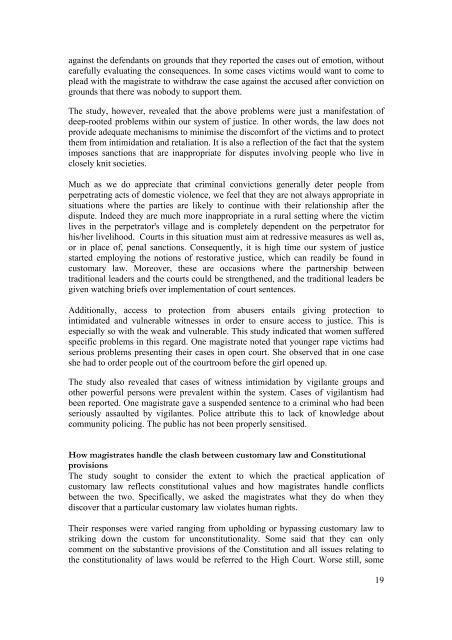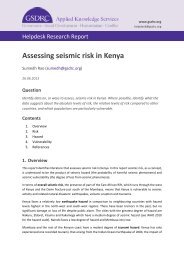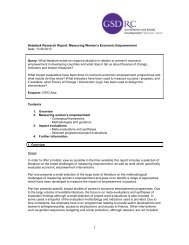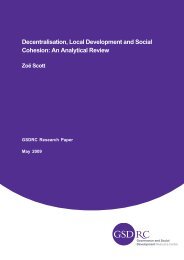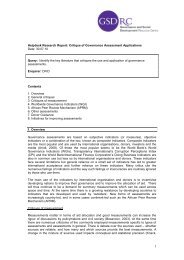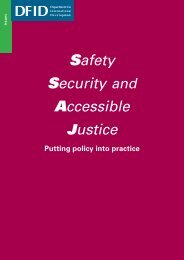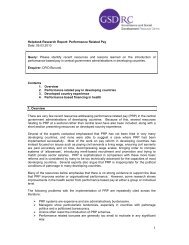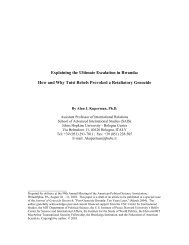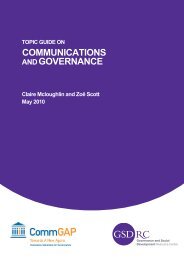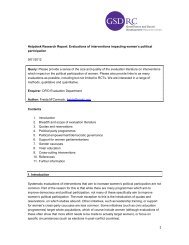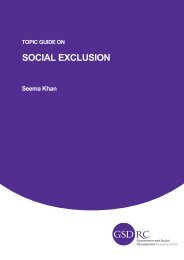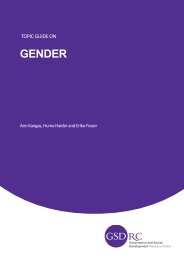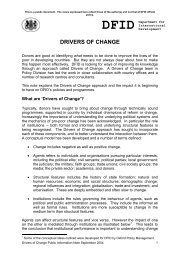ACCESS TO JUSTICE FOR THE POOR OF MALAWI? AN ... - GSDRC
ACCESS TO JUSTICE FOR THE POOR OF MALAWI? AN ... - GSDRC
ACCESS TO JUSTICE FOR THE POOR OF MALAWI? AN ... - GSDRC
- No tags were found...
Create successful ePaper yourself
Turn your PDF publications into a flip-book with our unique Google optimized e-Paper software.
against the defendants on grounds that they reported the cases out of emotion, withoutcarefully evaluating the consequences. In some cases victims would want to come toplead with the magistrate to withdraw the case against the accused after conviction ongrounds that there was nobody to support them.The study, however, revealed that the above problems were just a manifestation ofdeep-rooted problems within our system of justice. In other words, the law does notprovide adequate mechanisms to minimise the discomfort of the victims and to protectthem from intimidation and retaliation. It is also a reflection of the fact that the systemimposes sanctions that are inappropriate for disputes involving people who live inclosely knit societies.Much as we do appreciate that criminal convictions generally deter people fromperpetrating acts of domestic violence, we feel that they are not always appropriate insituations where the parties are likely to continue with their relationship after thedispute. Indeed they are much more inappropriate in a rural setting where the victimlives in the perpetrator's village and is completely dependent on the perpetrator forhis/her livelihood. Courts in this situation must aim at redressive measures as well as,or in place of, penal sanctions. Consequently, it is high time our system of justicestarted employing the notions of restorative justice, which can readily be found incustomary law. Moreover, these are occasions where the partnership betweentraditional leaders and the courts could be strengthened, and the traditional leaders begiven watching briefs over implementation of court sentences.Additionally, access to protection from abusers entails giving protection tointimidated and vulnerable witnesses in order to ensure access to justice. This isespecially so with the weak and vulnerable. This study indicated that women sufferedspecific problems in this regard. One magistrate noted that younger rape victims hadserious problems presenting their cases in open court. She observed that in one caseshe had to order people out of the courtroom before the girl opened up.The study also revealed that cases of witness intimidation by vigilante groups andother powerful persons were prevalent within the system. Cases of vigilantism hadbeen reported. One magistrate gave a suspended sentence to a criminal who had beenseriously assaulted by vigilantes. Police attribute this to lack of knowledge aboutcommunity policing. The public has not been properly sensitised.How magistrates handle the clash between customary law and ConstitutionalprovisionsThe study sought to consider the extent to which the practical application ofcustomary law reflects constitutional values and how magistrates handle conflictsbetween the two. Specifically, we asked the magistrates what they do when theydiscover that a particular customary law violates human rights.Their responses were varied ranging from upholding or bypassing customary law tostriking down the custom for unconstitutionality. Some said that they can onlycomment on the substantive provisions of the Constitution and all issues relating tothe constitutionality of laws would be referred to the High Court. Worse still, some19


